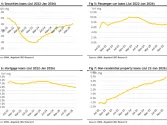
Australia’s super system could save $1b under proposed tax reforms
One measure proposed to introduce uniform tax policies across all accounts.
Simplifying tax rules over Australia's superannuation system could save about $1b in fund operational costs annually over the long term, a discussion paper, commissioned by Actuaries Institute, said.
The paper noted that superannuation in Australia can be less complex, more equitable, and sustainable through a three-pronged reform package. It was authored by actuarial consultants Richard Richard Dunn, Michael Rice, Jennifer Shaw, and Alun Stevens.
The reform package proposed to introduce a uniform tax policy across all superannuation accounts, taxing substantial withdrawals during retirement, and simplifying tax rules for bequests.
The paper suggests that it could save about $1b in costs by applying a uniform tax rate of approximately 10% on earnings across both accumulation and retirement phases, replacing the current system of 15% tax during accumulation and zero tax in retirement.
This change would simplify account structures, enabling Australians to maintain a single superannuation account throughout their lives.
Another key proposal involves taxing retirees who make high annual withdrawals, either as lump sums or pension benefits, with suggested thresholds of $250,000 and $150,000, respectively. To mitigate any adverse impacts, compensatory measures like adjustments to the Age Pension could be implemented.
This reform is intended to align with the primary purpose of superannuation, which is preserving savings to provide retirees with a stable income, the institute said.
The current 17% tax rate on superannuation death benefits would apply from age 67 instead of 60, with tax-free thresholds reflecting whether the beneficiary is dependent or non-dependent, ensuring a fairer and more consistent approach to taxing inherited superannuation funds.
Additionally, the distinction between concessional and non-concessional contributions would be removed once the funds are invested in superannuation, simplifying tax treatments further and lessening complexity for fund members.
Actuaries Institute chief executive Elayne Grace stressed the need for meaningful tax reform in the $4.1t superannuation system, highlighting potential benefits of these changes such as improved equity and efficiency.
Jennifer Shaw, one of the paper's authors, noted that the proposed reforms align with superannuation’s goal of delivering a dignified retirement whilst preserving flexibility for retirees to address immediate financial needs, such as paying off mortgages or healthcare costs.



















 Advertise
Advertise









